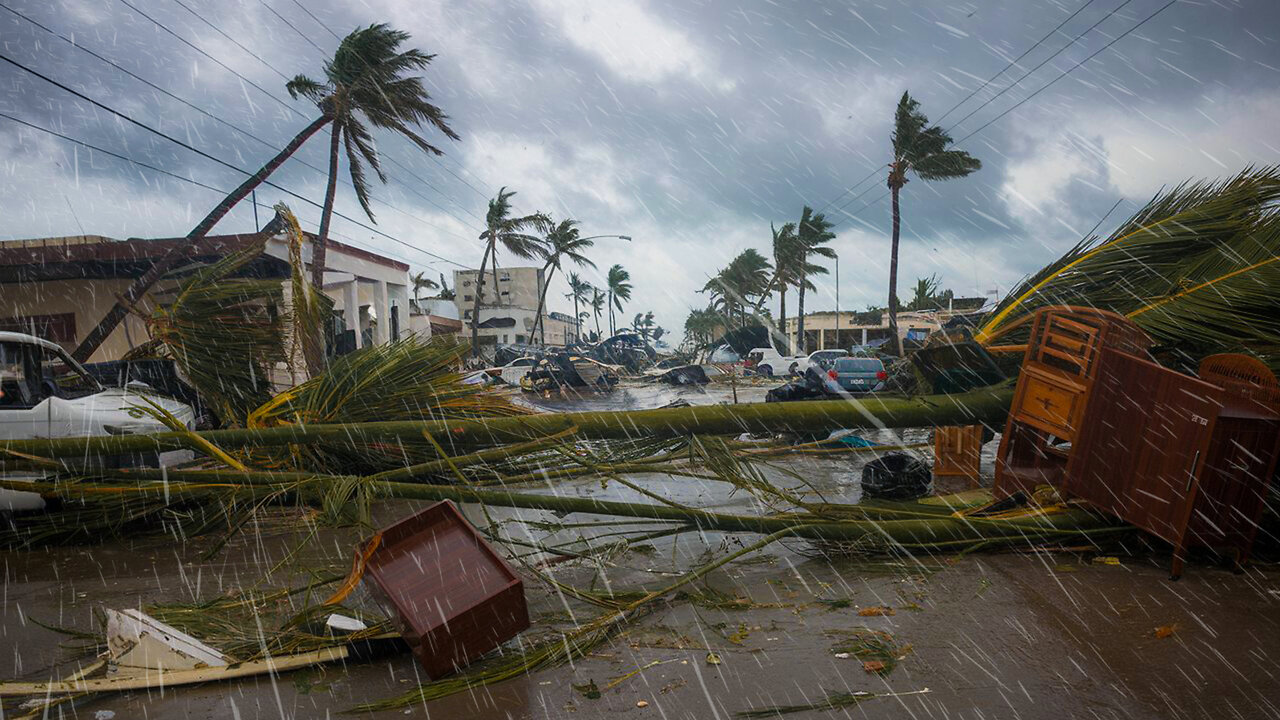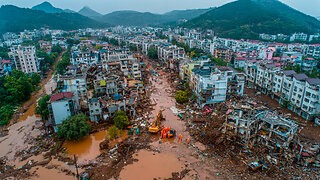Premium Only Content

Cuba NOW! Devastating Hurricane Rafael Causes National Blackout
On the evening of November 6, the tropical hurricane "Rafael" struck Cuba with devastating force. Rapidly intensifying before making landfall as a Category 3 hurricane, "Rafael" hit the western part of Artemisa Province, causing dangerous storm surges, very heavy rainfall, and destructive hurricane winds reaching speeds of up to 115 mph.
The storm caused significant damage to the provinces of Mayabeque and Artemisa, where authorities urgently evacuated people from coastal areas. The capital, Havana, also suffered serious damage due to heavy rain and strong winds. The Cuban Civil Defense declared a state of alarm in the western and central provinces, urging people to limit their movement. Authorities canceled flights, halted public transportation, and closed schools. More than 100 Canadian tourists were evacuated from the popular resort island of Cayo Largo, located in the southwest of Cuba.
The storm caused a collapse of the national power grid, leaving more than ten million people without electricity. According to government representatives, the blackout occurred due to the powerful winds when "Rafael" approached the coastline. This marks the second major power outage in the country in recent weeks. The previous outage occurred on October 18, just before the impact of Tropical Storm "Oscar," whose arrival worsened the situation and seriously hampered recovery efforts.
"Rafael" also forced oil companies to halt operations in the Gulf of Mexico: Chevron evacuated all personnel, while Shell and BP removed their employees from several platforms.
By the next morning, the wind's main force had weakened, but heavy rain continued, hindering recovery efforts.
According to NOAA, "Rafael" became the strongest hurricane to strike the northwestern Caribbean in November since 2009.
It is also noteworthy that the storm intensified from Category 1 to Category 3 in less than 24 hours before landfall.
Experts attribute such rapid intensity spikes to the anomalous warming of the oceans. In 2023, the world ocean temperature reached record levels, and 2024 is continuing this trend. The warmer the water, the stronger the hurricanes, which bring more rainfall and destruction. The heated ocean also evaporates more moisture, causing heavy rainfall and flooding.
Scientists have already developed technologies capable of quickly and effectively reducing atmospheric humidity, which may help reduce the frequency and intensity of natural disasters. This would give humanity more time to combat the approaching climate catastrophe. For more details on these innovative solutions, watch the popular science film "Water From Air. The Path To Saving Humanity." Everything is in our hands — watch the film and see for yourself how important this is.
-
 4:22
4:22
AllatRa TV
4 days agoChina’s Deadliest Floods of 2025 Leave Dozens Missing
1203 -
 10:59
10:59
itsSeanDaniel
1 day agoEuropean Leaders INSTANTLY REGRET Disrespecting Trump
26.2K19 -
 16:43
16:43
GritsGG
17 hours agoThey Buffed This AR & It Slaps! Warzone Loadout!
27.7K1 -
 2:05:30
2:05:30
Side Scrollers Podcast
21 hours agoEveryone Hates MrBeast + FBI Spends $140k on Pokemon + All Todays News | Side Scrollers Live
120K14 -
 11:06
11:06
The Pascal Show
15 hours ago $1.68 earned'THEY'RE GETTING DEATH THREATS!' Jake Haro's Lawyer Breaks Silence On Emmanuel Haro's Disappearance!
22.4K4 -
 LIVE
LIVE
Lofi Girl
2 years agoSynthwave Radio 🌌 - beats to chill/game to
282 watching -
 2:19:32
2:19:32
Badlands Media
1 day agoDEFCON ZERO Ep. 005: False Flags, Cyber Fronts & Global Power Plays
164K77 -
 2:35:23
2:35:23
FreshandFit
10 hours agoWhy Black Men Don't Date Black Women Debate
49K51 -
 2:03:42
2:03:42
Inverted World Live
14 hours agoBigfoot Corpse Coming to the NY State Fair | Ep. 94
115K27 -
 6:16:23
6:16:23
SpartakusLIVE
15 hours ago$1,000 Pistol Challenge || #1 ENTERTAINER of The EONS Eradicates BOREDOM
89.3K3